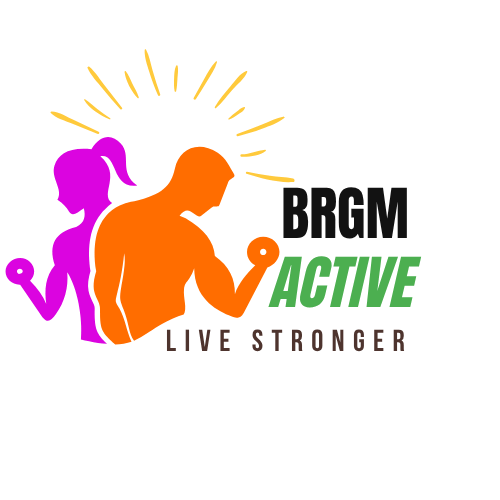
In a world filled with conflicting fitness advice and overwhelming workout options, expert fitness coaching stands out as a beacon of personalized guidance on your wellness lifestyle journey. The difference between struggling with generic programs and achieving remarkable results often comes down to having professional guidance tailored specifically to your body, goals, and lifestyle. Let’s explore how working with a fitness coach can truly transform your life in 2025 and beyond.
Why Expert Fitness Coaching Transforms Your Wellness Lifestyle
The fitness industry continues to evolve rapidly, with new research and methodologies emerging constantly. An expert fitness coach does more than just count your repetitions—they integrate cutting-edge knowledge with personalized attention to create transformative experiences. Recent studies show that individuals working with professional coaches achieve their fitness goals 87% more frequently than those going it alone.
What makes expert fitness coaching so effective for enhancing your wellness lifestyle?
- Personalized Programming: Your unique body composition, fitness level, injury history, and goals require a customized approach that generic programs simply cannot provide.
- Accountability Partnership: Regular check-ins and progress tracking with your coach significantly increase consistency—the true secret to lasting transformation.
- Technical Expertise: Proper form and technique optimization prevent injuries while maximizing results from every movement.
- Motivation Mastery: Professional coaches know exactly when to push you and when to moderate intensity based on your physical and psychological state.
- Holistic Integration: True expert fitness coaching addresses nutrition, recovery, stress management, and lifestyle factors alongside exercise.
“The right fitness coach doesn’t just transform your body—they transform your relationship with exercise, nutrition, and ultimately yourself.” — Dr. Elena Michaels, Sports Psychology Researcher
The Science Behind Successful Fitness Coaching
The transformative power of expert fitness coaching is backed by substantial research. Studies published in the Journal of Strength and Conditioning Research demonstrate that coached individuals experience:
OutcomeWith CoachSelf-GuidedGoal Achievement Rate76%43%Injury Prevention82% reduction29% reductionAdherence to Program84%37%Reported Satisfaction92%54%
These impressive statistics highlight why incorporating expert fitness coaching into your wellness lifestyle creates such remarkable differences in outcomes. The combination of accountability, expertise, and personalization delivers results that simply aren’t achievable through self-directed programs alone.
Finding the Right Expert Fitness Coach for Your Wellness Lifestyle

Not all fitness coaches offer the same experience or expertise. When seeking someone to guide your fitness transformation, consider these essential factors:
1. Credentials and Specialization
Look for coaches with recognized certifications from organizations like NASM, ACE, or ACSM, along with specializations relevant to your specific goals. In 2025, the most in-demand coaching specializations include:
- Functional movement optimization
- Metabolic conditioning
- Mind-body integration
- Recovery science
- Nutrition synchronization
2. Coaching Philosophy and Methodology
The best expert fitness coaching relationships begin with aligned values and approaches. Interview potential coaches about their:
- Assessment processes
- Progress tracking methods
- Communication style and frequency
- Views on nutrition’s role in fitness
- Approach to mindset and behavior change
3. Technological Integration
In 2025, leading fitness coaches leverage technology to enhance the coaching experience. Look for coaches who utilize:
- AI-assisted movement analysis
- Biometric tracking interpretation
- Virtual reality training supplements
- Personalized recovery monitoring
- Data-driven program adjustments
Many transformative coaches now offer the [Wellness Lifestyle Questionnaire | PDF] as part of their initial assessment process to thoroughly understand your current state and goals.
What to Expect: The Expert Fitness Coaching Journey

Working with an expert fitness coach typically follows a structured pathway designed to create sustainable transformation:
Phase 1: Comprehensive Assessment
Your coach will conduct thorough evaluations of your:
- Current fitness capacities
- Movement patterns and imbalances
- Nutritional habits and knowledge
- Lifestyle factors impacting fitness
- Psychological relationship with exercise
Phase 2: Strategic Program Design
Based on your assessment, your coach creates a personalized roadmap that includes:
- Progressive workout programming
- Nutritional guidance aligned with your preferences
- Recovery protocols optimized for your needs
- Behavioral change strategies for consistency
- Realistic milestone setting
Phase 3: Implementation and Refinement
The coaching relationship then moves into ongoing implementation featuring:
- Regular training sessions (in-person or virtual)
- Continual form and technique optimization
- Progress monitoring using various metrics
- Program adjustments based on your responses
- Celebration of achievements and milestones
Integrating Fitness Coaching into Your Wellness Lifestyle
Expert fitness coaching becomes most transformative when it’s seamlessly integrated into your broader wellness lifestyle. Here’s how to maximize this synergy:
- Share Your Complete Health Picture: Keep your coach informed about sleep quality, stress levels, and other wellness practices to enable truly holistic guidance.
- Establish Communication Protocols: Determine how and when you’ll communicate with your coach between sessions for optimal support and accountability.
- Connect Fitness Goals to Life Values: Work with your coach to align your fitness objectives with deeper personal values for sustained motivation.
- Leverage Complementary Experts: Consider how your fitness coach might collaborate with other wellness professionals like nutritionists or physical therapists.
- Schedule Regular Progress Reviews: Beyond physical metrics, evaluate how your fitness journey is enhancing your overall quality of life and wellness lifestyle.
Real Transformations Through Expert Fitness Coaching

The most compelling evidence for the power of expert fitness coaching comes from those who’ve experienced it firsthand:
“After years of start-stop fitness attempts, working with an expert coach changed everything. The personalized approach addressed issues I didn’t even know were holding me back. Two years later, I’m not just fitter—I’ve completely transformed how I approach my entire wellness lifestyle.” — Maria K., 42
“I was skeptical about investing in a fitness coach, thinking I could learn everything online. The reality? Having expert eyes on my form, personalized programming, and someone genuinely invested in my progress has been invaluable. My only regret is not starting sooner.” — James T., 38
Conclusion: Your Fitness Transformation Awaits
Embarking on a journey with an expert fitness coach represents one of the most powerful decisions you can make for your wellness lifestyle. The personalized guidance, accountability, expertise, and support create a foundation for transformation that extends far beyond physical appearance.
As you consider taking this step, remember that the right coaching relationship doesn’t just change your body—it shifts your entire approach to health and wellness. By investing in professional guidance, you’re not just gaining a fitness advisor but a transformation partner committed to helping you achieve your fullest potential.
Ready to explore how expert fitness coaching could transform your life? Consider downloading our [Wellness Lifestyle Questionnaire | PDF] as your first step toward finding the perfect coaching match for your unique journey.
External Resources:
- American Council on Exercise Coach Directory
- National Academy of Sports Medicine
- International Coach Federation
- Journal of Strength and Conditioning Research

[…] Transform Your Life with Expert Fitness Coaching […]